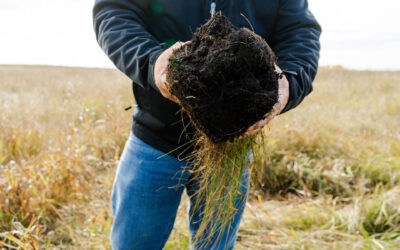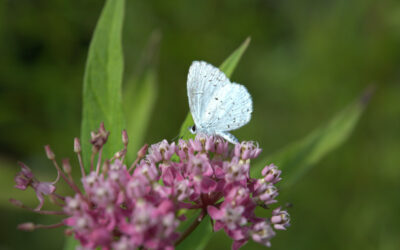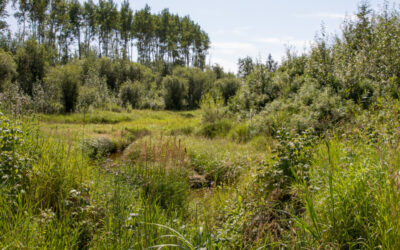ALUS PEI’s successful pilot project for grassland bird conservation will benefit from additional funding over the next two years, courtesy Environment and Climate Change Canada.
Federal funding of $48,000 from Environment and Climate Change Canada’s Species at Risk Partnerships on Agricultural Lands (SARPAL) program will be directed to the Island Nature Trust, who will monitor long term hay fields enrolled for delayed hay cutting through the PEI’s Alternative Land Use Services (ALUS) program.
The monitoring work will examine the reproductive success of Bobolink on PEI, resulting in a better understanding of their life history, including nesting site preferences and fledging dates of juvenile birds.

The Province is currently piloting a delayed-haying initiative through PEI’s ALUS program to protect the Bobolink and other grassland bird species, including the Savannah sparrow, Nelson’s Sharp-tailed sparrow, and various grassland-nesting waterfowl.
“We are proud to partner with Environment and Climate Change Canada, ALUS Canada as well as the Island Nature Trust to come up with creative solutions that work for both agriculture and at-risk wildlife species,” said Minister of Environment, Water and Climate Change, Brad Trivers. “We want to give farmers another tool in their toolbox to help manage species-at-risk on their farms.”
The Bobolink is a medium sized songbird, found in grasslands and hayfields. It has experienced an 88 percent decline over the last 40 years. In 2017, the Bobolink was listed as threatened under the federal Species at Risk Act (SARA). Early mowing has been shown to destroy nests of Bobolink and other bird species that nest in long-term hayfields in PEI; however, delaying the first cut of hay can have a financial implication for farmers, as later hay has a reduced protein level.
The Province is currently piloting a delayed-haying initiative through PEI’s ALUS program to protect the Bobolink and other grassland bird species, including the Savannah sparrow, Nelson’s Sharp-tailed sparrow, and various grassland-nesting waterfowl.
In 2018, the Province signed a landmark agreement with ALUS Canada, a Weston Family Initiative, to help conserve threatened grassland bird species on the Island though a delayed-haying initiative.
The ALUS Canada funding, a Weston Family Initiative, of $90,000 over three years allows PEI ALUS to support participating farmers’ efforts to delay their first cut of hay in long-term hay fields until July 16, after these birds have fledged the nest.
This program has already shown great potential for helping the Bobolink, while producing a whole suite of ecosystem services of benefit to Island communities.
The PEI ALUS initiative is popular because it not only helps the birds but also helps cover farmers for potential losses by providing an annual payment of $62 per hectare ($25 per acre) enrolled in the program.
In 2018, 34 PEI farmers enrolled approximately 350 hectares (865 acres) in the first year of the initiative. According to Island Nature Trust, who conducted the associated monitoring, 19 of 28 sites had breeding pairs of Bobolink present.
According to Shawn Hill, PEI ALUS coordinator, funding has been mostly committed for the next two years, but farmers and landowners with long-term hay fields can still apply to have their name added to a waiting list.
Once the pilot program is completed in 2020, the Province will be taking a careful look at this delayed haying initiative to see if it could be added to the PEI ALUS program on a permanent basis.
The Minister of Agriculture and Land, Bloyce Thompson, acknowledges the importance of working with Island agriculture to address on-farm conservation issues.
“Nobody intends to harm wildlife species through their day-to-day farming activities. We see PEI farmers’ creating value for PEI, not only by producing high quality food, by also by providing services for the environment and public good,” said Minister Thompson.
For more information, visit the P.E.I. Government’s website, here: https://www.princeedwardisland.ca/en/news/partnership-helps-grassland-birds-pei



